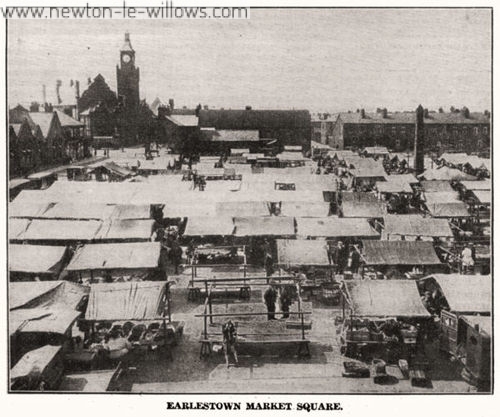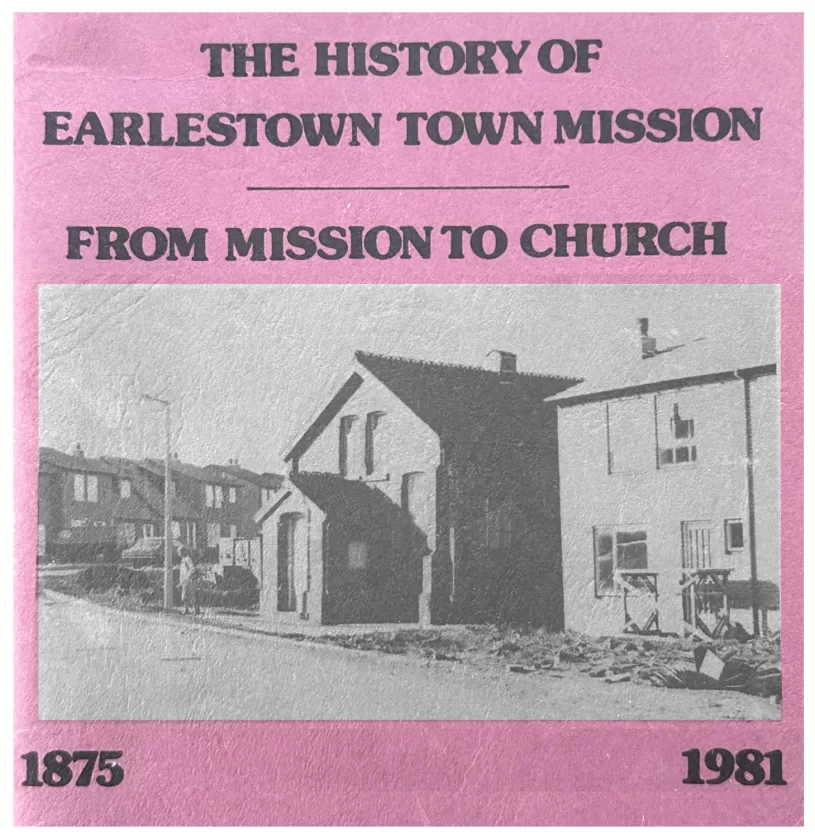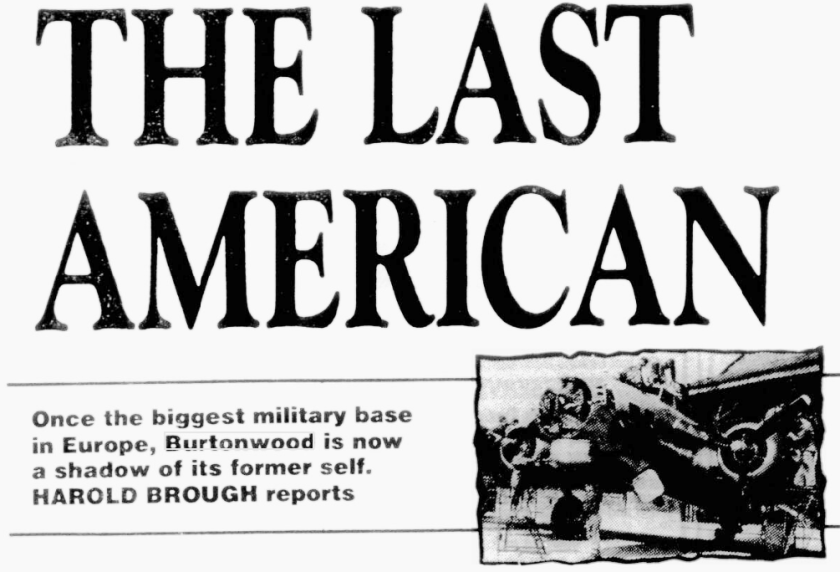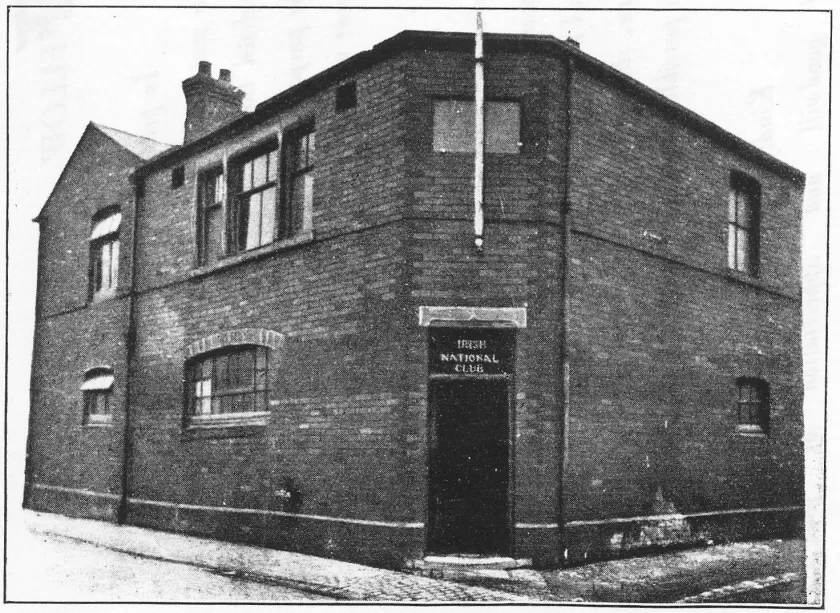In 42nd Henry III. (1258), Robert Banastre, the fourth baron of that name, obtained the Kings charter for a fair and market at his manor of Newton . Forty-three years afterwards a market and two fairs were granted by Edward I. to John de Langton – the market to be held every Saturday, and the fairs on the eve,day, and morrow of St. John (6th May) and of St. Germain (31st July).
In 1536 the former was described by Leland (King Henry VIII.s antiquary) as “a little poore market.” This poor market seems to have been continued down to 1824, when it was stated to have fallen into disuse. The late Mr. James Pilling, the veteran postman, who died on the 6th March, 1907, aged 79 years, once told us that he remembered the market (after the chartered privilege had been revived) being held near St. Peters Church, the goods, principally meat and farm produce, being disposed for sale on small stands.
The Fairs appear to have been of much more importance than the Market, and formerly were held on February 12th, May 17th, July 15th, and every Monday fortnight for cattle and sheep ; and on August 12th for horses, horned cattle, and toys. These days were afterwards curtailed to May 17th and August 11th and 12th. From ” Notes of the House and Farm Accounts of the Shuttleworths of Gawthorpe Hall” (edited by John Harland, Esq., F.S.A.), we take the following as showing that Newton Fair was an institution of no little importance in the sixteenth century:-
In 1594 a gray nag of Sir Richard Shuttleworths was sold to Mr Morte, at Newton Fair, for £4 in gold, and an old white horse or gelding, called Nutter, for £3 4s. In 1595 a horse three years old was sold at Newton Fair for £4 5s; another, four years old, for £3 13s. 4d; and the black mare Ginger for £3-
In 1840 the Market-house (now the Nurseries), formerly the lodge and entrance gates to Haydock Park, was erected in High-street, and the market transferred to it, one wing of which was fitted up with butchers stalls, and the other with stalls for the sale of hard-ware, toys, etc. The market was held in this building for a few years, and then, for lack of support, was discontinued, one wing of the building being converted into a dwelling-house for the owner of the adjoining nursery-gardens. It was not again revived until 1870, when it was transferred with the market-cross (the obelisk) to the ground at Earlestown, and the day changed from Saturday to Friday.
In 1842 the Lord of the Manor (Thomas Legh, Esq.), to quote the Manchester Guardian of May 21st of that year:-
?Has revived the horse fair heretofore held with the cattle fair in the month of May annually, and, a spirited subscription having been entered into by the inhabitants, a variety of premiums were offered to the horse-dealer bringing for sale the best string of cart-horses or riding-horses; for the best brood mare; for the best three-year old colt or filly offered for sale for farming use; for the best farmers stallion ; and for the best team of farm horses shown in the fair, being the bond fide property of the farmer.
Unfortunately, Tuesday, the day on which the first horse fair was held at Newton, happened to be that on which similar fairs were held at Ormskirk and other neighbouring towns, and in consequence the show of horses offered for sale was scanty. There were many buyers in attendance, and they were evidently disappointed at not meeting with a stronger muster of dealers. There were no entries for the first two premiums. The judge, Mr. Brady, of Lyme Park, steward to Thomas Legh, Esq., awarded the premium for the best brood mare to Thomas Legh, Esq. The premium for the best stallion was given to Mr. Thomas Ashton, of Burtonwood, for a black horse four years old. To Mr. Thomas Peters, of Lowton, was awarded the prize for the best team of farm horses. There was a large show of cows and yearlings, which fetched rather high prices.
In the afternoon the tenantry of Mr. Legh dined together at the Legh Arms, where an excellent repast was provided by Mrs Wilcox, the landlady. Mr Woods, the deputy-steward, presided; and the remainder of the day was spent with the greatest hilarity.?
In our early days the show of horses, cattle, sheep, etc., was very good indeed, and a large amount of business was done. The middle of High-street, from the Church to the “Pied Bull,” was thronged with horses and cattle, and the pigs, sheep, and goats were penned on the cobbled spaces between the pavement and the houses, on both sides of the street ; and hard work it was for the cottagers to clear away the refuse next morning! But, for “Young Newton,” the cake and toffy stalls, the shows, swinging-boats, and other amusements were of more attraction, and the savings of many a long day were liberally expended upon them. Most of the travelling shows called at Newton on these days, and our description of a visit to Knott Mill Fair in Manchester is not an exaggerated one of what we have witnessed, in the sixties, at Newton:-
One night I had an hour to spare,
So off I went to Knott Mill Fair;
There to view the wondrous sights ?
The circus-clowns and boys in “tights”;
The wild-beast shows; the studios
Where you may purchase for a “tanner”
A portrait of yourself and Hannah;
The walruses; performing fish;
Ponies that tell you what you wish,
And where your mother buys her snuff,
Your sweethearts name, and such-like stuff;
The woman fat; and the giant rat;
The three-legged sheep: the spotted man; –
A skeleton your hand could span
Around his neck, his arms, or legs;
Then theres the man who bolts the eggs;
The marionettes; the pea-saloons;
And bands that play all sorts of tunes;
And, if you are a steady shot,
Why, galleries are on the spot;
Here, batteries to shock your nerves;
There, bicycles that run in curves;
And barrel-organs, played by vapour,
Keep time to mules that cannot caper;
To test your lungs there are machines;
And rows of galleries whose scenes
Youd think were pictures of high fame,
But which you find belie their name,
For in thems nothing very pretty,
Except a Bobby kissing Kitty;
Hard by, King Coffee rears his head,
Upon whose face a disc is spread,
And from whose breast a padded staff
Extends – a sight to make you laugh –
Yet, by His Highness, if you like,
You soon may prove the weight you strike;
And there was such a row and bustle
As might have suited men of muscle,
But did not me, I do declare,
And, satisfied, I left the fair.
But the principal event at the fair was the “Procession of Grey Cloaks,” consisting of the steward of the lord of the manor, the assistant-overseer, and the tenant farmers clad in long braided cloaks adorned with the Legh badge in silver, and carrying halberds in their hands. They were followed by a band playing old-fashioned wind instruments, their musical repertoire consisting of “The White Cockade” and “The Duke of Yorks March,” played alternately, and accompanied by the drummer playing every note with such vigour as almost to drown the squeaking of the instruments.
The procession started at the “Oak Tree,” where the proclamation was read by the assistant-overseer standing on a chair, and proceeded down High-street, followed by a queue of nondescripts, to the obelisk in the churchyard, from the steps of which the proclamation was again recited, to wit:
“0 Yes ! 0 Yes ! 0 Yes !
John Fitchett, Esquire, Steward of this Borough,
In the name of our Sovereign Lord the King,
As also in the name of Thomas Legh, Esquire, Lord of this Borough,
doth give Publick Notice to all persons resorting to this Fair
now held in the Borough of Newton,
that they shall behave themselves civilly,
orderly, and quietly during this present Fair,
and that no person or persons whom so ever
shall Wear or Bear any sort of Weapons but Halberts,
and those only who are authorised to attend the Steward
during this present Fair.
And further, doth order and direct
that any person or persons who shall buy any sort of Cattle,
or exchange any whatsoever, shall not quit the said Fair,
without paying the customary Tolls due for such like Cattle,
on pain of being fined according to the Laws and Statutes of this Realm,
made and provided for such like offenders.
And lastly, doth give Notice
that this Fair is to continue three days.
God save the King, and Thomas Legh,
Esquire, Lord of this Borough,
and the Liberties thereof.?
The procession then re-formed and proceeded to the “Pied Bull,” where the bandsmen and yeomen were regaled with a dinner and the usual concomitants.
At the May fair in 1870 this ancient custom was discontinued for the first time, the authorities considering the custom more honoured in the breach than in the observance. Personally, we would rather it had been continued with members of the district council as bandsmen – it would have been an honour to them and a pleasing variation to us from hearing them blow their own trumpets at election times !
On the discontinuance of the procession, the grey mantles, made of choice material, were given to the tenantry, and were converted into good warm petticoats for the wives and lasses and into overcoats and breeches for the husbands and lads.
John Fitchett, Esquire (mentioned in the Proclamation of the Fair), a former steward of the Fee of Makerfield, was (to quote James Kendricks ” Warrington Worthies”) born at Liverpool on September 21st, 1776. He was the author of “King Alfred, an Epic Poem” (consisting of 131,000 lines, probably the longest poem in any language); We are indebted to Colonel J. L. Wood for this transcript of the proculatian from a copy made by him, in 1876, from the original document.
“Bewsey, a Poem”; and a volume of “Minor Poems”. Mr Fitchett followed the profession of a solicitor at Warrington , and in the leisure intervals of a very extensive practice found opportunities of cultivating his taste for elegant literature. Before his death he had accumulated a classic library, which as the work of a private individual is unsurpassed in the North of England . It is particularly rich in works on English History and Poetry, more especially illustrative of the poets of the Elizabethan age. He died at Warrington on October 20th, 1838.- See “Dictionary of National Biography.”
0 YES! 0 YES! 0 YES! – A corruption of the French Oyez! Hear ye! Now used by the usher to enjoin silence and attention in courts of justice.
HALBERDS – All burgesses within the town, etc., shall find every of them an able man well furnished for that purpose with byll, hobarde (halberd), or other weapon, to wait upon the steward upon the fair day, and this to continue from time to time. – ” Manchester Court Beet Records.”
When the fairs and market were discontinued, the tolls had become very reasonable and to the other extreme of the “outrageous tolls that were taken and usurped where fairs and markets were kept in the troublesome and irregular reign of Henry III.,” and defeating the intention of Magna Charta; but the “Westminster Primer” was enacted to provide a remedy for such exactions, and led to the suppression of many of them (see Cap. 31).
Sometimes the fair and the market were combined, as in the word forum, from which “fair ” is derived, and which signifies both, though fair only is mentioned in the Newton proclamation ; for every fair is a market, but every market is not a fair : nor is a toll incident to fair or market by grant.
Markets were anciently kept at the court gate, which incidentally proves that the court was near the church. And there was a clerk of the market fees called clericus mercati hospitii regis (because there was a market kept at the court gate). But in our time there was not much need of such a functionary – what there was fulfilled by Mr Richard Owen, whose visits to the stalls near the church were nearly always occasions for some innocent badinage from “Owd Taypot” (John Brown, a well-to-do confectioner from Ashton), who, on the principle that the more he shouted the more he sold of his gingerbread, attracted attention by this badaudage – ” Owd Taypot! Owd Taypot! Ill buy me Owd Taypot a bonnet!”
These were some of the humours of the fair, besides the letting loose of much pent-up energy of the juveniles, who came into the fair as amateur cattle-drovers, and had a day off from manual labour, with very little to spend, and, if there were shows, took an outside place for economy.
The toll-men had no sinecures, for the drovers and horse-coupers were very astute and often tried to bamboozle them by pretending that they had not sold – only those sold being liable to toll. And at times I was reminded of “Donnybrook,” there were so many of them, as we knew by their national characteristics; and also by the shows as noted in “Knott Mill Pair”. The ” Augeau stables” were a mere trifle to the cleansing of the street (the forum) the next day, and the industry of a few was most admirable, as some of the heaps paid the next half-years rent. Then, too, was to be seen “Billy Button” in all the import of his office as stableman. And then, too, the grand finale of the yeomen and burgesses at the “Pied Bull” dinner. – P. M. C.
This text is transcribed by Steven Dowd from the 1916, Vol II, History of Newton in Makerfield by J H Lane, some of the notes in the text are from Mr Peter M Campbell, a person who Lane qouted often in the books he published.
If there are vocabulary errors or spelling mistakes in the transcription i can only apologise, because you can more than likely directly blame me for them.
This transcription, its errors and omissions are my own transcription from the original published text and are copyright steven Dowd, if you plan to use this text on your website, please inform me before use.



